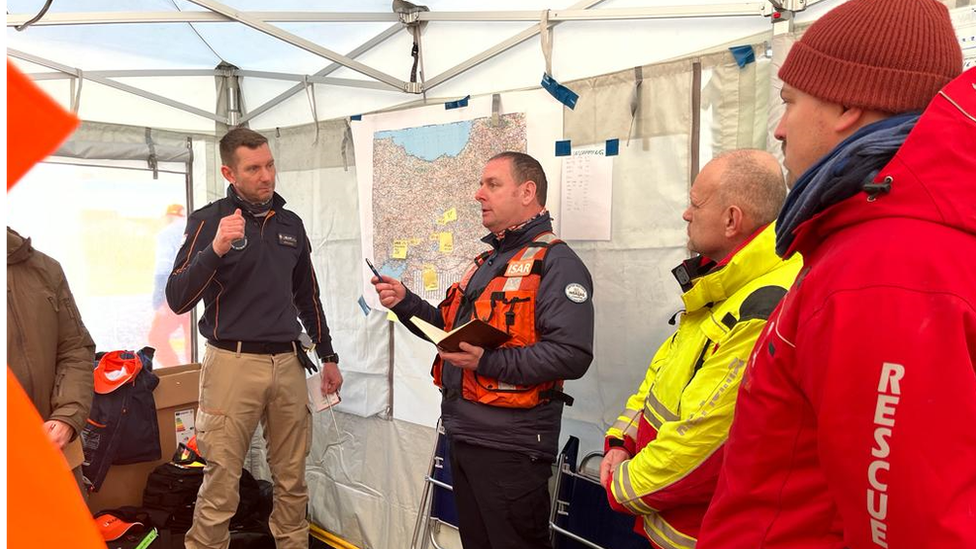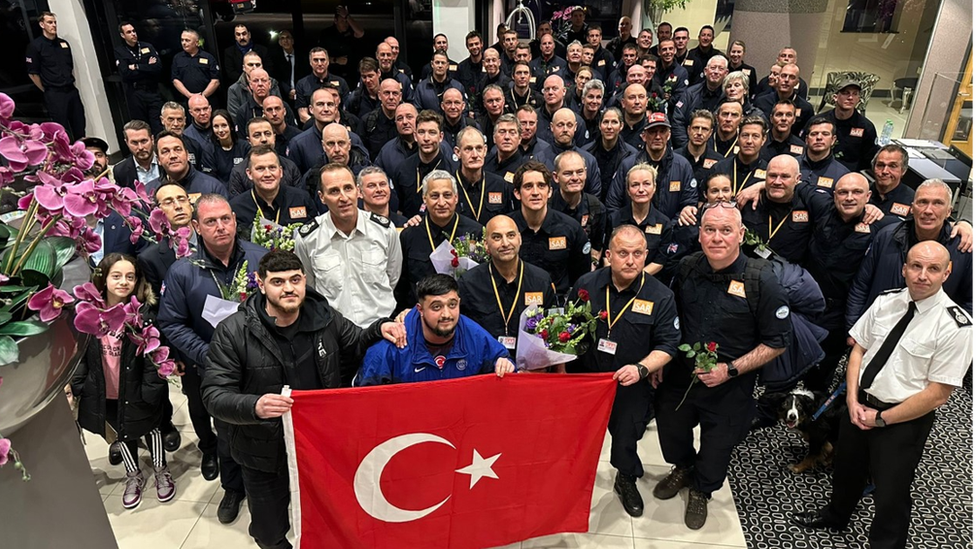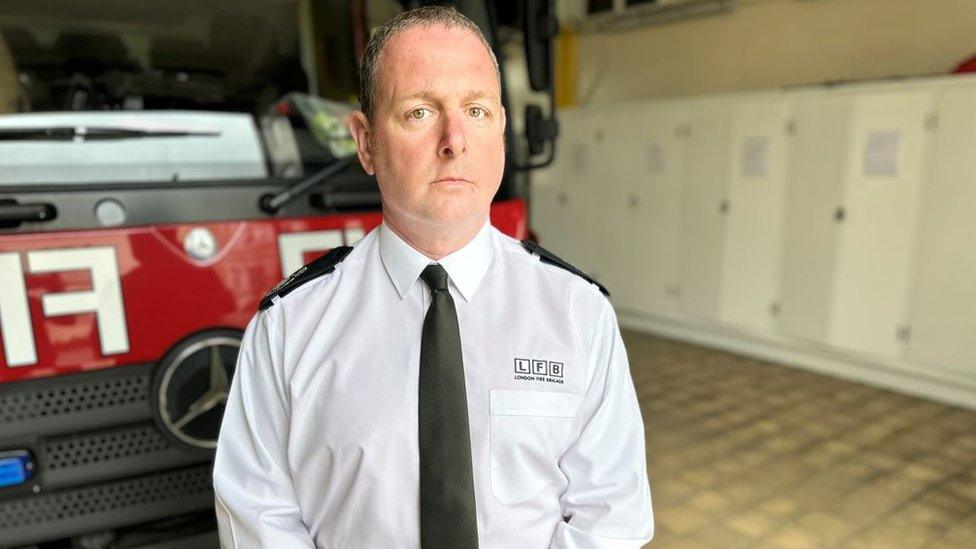Turkey earthquake: Firefighter co-ordinator helps to save victims
- Published
London firefighters rescue earthquake victims
A team of 12 search-and-rescue specialists from the London Fire Brigade travelled to Turkey to help with the earthquake rescue effort.
They joined firefighters from 13 other services across the UK and were led by LFB assistant commissioner David O'Neill.
He told the BBC: "We were able to rescue eight people alive up to eight days after the event."
He described the reuniting of a toddler with her mother as "fantastic".
A 7.8 magnitude earthquake struck southern Turkey and northern Syria on 6 February.
In total 77 UK search-and-rescue specialists were posted to Turkey, joining 91 other rescue teams from around the world.
David O'Neill, deployment commander for the UK International Search & Rescue team in Turkey, told the BBC: "It felt as if there was a really strong bond, we all had a common purpose."
He added: "That first live rescue that we did within a day of of reaching the area really lifted the team and drove them to continue."
The teams used specialist equipment, including seismic listening devices, to detect and locate people.

David O'Neill spent 10 days in Turkey leading a team of 77 firefighters
They were posted to the city centre of Hatay, which Mr O'Neill described as "densely populated with a lot of high-rise buildings".
"The way the buildings are constructed in Hatay with a lot of reinforced concrete meant that actually there were great big voids where we knew people could still remain alive."
Talking about the pressure of leading such an important rescue team, the assistant commissioner said: "It's a huge responsibility and something I was very aware of."

Experts from 14 fire services across the UK helped with the rescue effort

David O'Neill was deployment commander for the UK International Search & Rescue team in Turkey
He added: "We've got people in very, very dangerous situations with lots of aftershocks happening.
"I wasn't satisfied until 77 people and four dogs had returned safely to the UK; it was only then that I could actually start to relax."

Follow BBC London on Facebook, external, Twitter , externaland Instagram, external. Send your story ideas to hellobbclondon@bbc.co.uk, external